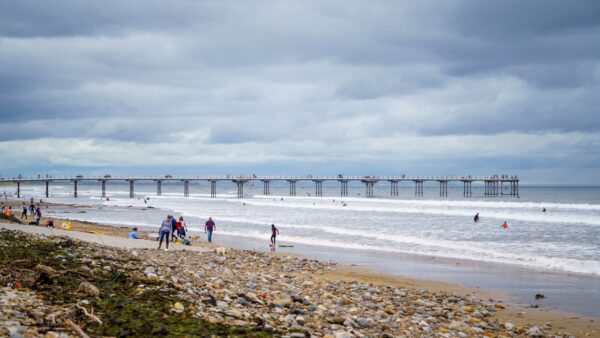The panel of independent experts set up to assess the cause of dead and dying crabs washed up on shores from October 2021 have published their findings. The panel, made up of experts from academia and industry, was chaired by Defra’s Chief Scientific Adviser Gideon Henderson with input from the Government Chief Scientific Adviser, Sir Patrick Vallance. Previously MPs probing the issue criticised the investigation for a “lack of transparency”.
They investigated a number of possible causes for the unusual crab deaths which started in October 2021 including a potential disease or parasite, a harmful algal bloom, chemical toxicity including pyridine, and dredging which could have released a toxic chemical. Each of these potential causes was assessed according to the likelihood of the occurrence.
The Defra press release states: ‘The key observations that must be explained by any cause include: Mortality over a sustained period and along at least 70km of coastline; the unusual twitching by dying crabs observed in many locations; and the deaths being dominantly crustaceans rather than a wider range of species.
The panel concluded:
- It is about as likely as not that a pathogen new to UK waters – a potential disease or parasite – caused the unusual crab mortality. There are pathogens known to cause similar symptoms to those observed in the north-east and these pathogens have caused mortality events and declines in crustacean populations around the world. No significant pathogens were identified in the north-east crabs but full molecular screening was not conducted at the time of the initial investigation.
- It is unlikely that a harmful algal bloom or that a loss of oxygen in the water associated with the algal bloom caused the crab deaths.
- It is very unlikely that pyridine or another toxic pollutant caused the crab deaths. The panel considered industries on Teesside and concluded they could not be sources of any significant volume of pyridine during the period of the crab deaths.
- It is very unlikely that maintenance dredging, as required to keep the port open, was the cause; a dredger operated in the channel offshore Teesside during late September and early October 2021 but the maximum possible release of toxic chemicals, including of pyridine, caused by this activity is significantly too small to cause crab mortality.
- Capital dredging (i.e. as required to expand the port) was last carried out in December 2020, some time before deaths started in October 2021.
Although there is no direct evidence of a novel pathogen – a disease or parasite – it would explain the key observations including mortality over a sustained period and along 70km of coastline, the unusual twitching of dying crabs and the deaths being predominantly crabs rather than other species..
It is also possible that a combination of factors lead to the unusual mortality, rather than one of the factors the panel considered.
Sir Patrick Vallance, Government Chief Scientific Adviser, said:
Whilst with the current data there cannot be a definitive answer, the options for possible causes and an analyses of likelihood are clearly laid out in the report.
Gideon Henderson, Defra Chief Scientific Adviser, said: The panel was unable to identify a single clear cause, but it has been able to point to those more likely to explain the key features of the outbreak.’
Report criticisms
The report was met with criticism by academics from the universities of York, Newcastle and Durham, the Guardian reported.
“Given that the weight of evidence indicates an industrial source for the die-offs, it is disappointing to see that the independent expert panel have reached the conclusion that the die-offs were probably caused by an unknown pathogen, despite there being no direct evidence for this. The academic team will continue to undertake research into these events,” they said in a statement.
Joe Redfern, the secretary of Whitby Commercial Fishing Association, said he and the North East Fisheries Collective were surprised and disappointed at the conclusions of the report.
Further information and resources
- The independent panel was convened by Professor Gideon Henderson, the Defra Chief Scientist with Professor Sir Patrick Vallance, the Government Chief Scientist who also reviewed the report.
- The Environment Secretary’s response to the report can be read here.
- The evidence gathered for the report can be found here.
- The Defra press release can be read here.
- The panel’s full report can be read here.
- Defra have said that events for interested stakeholders in the North-East of England are being planned and further information will be shared soon.
